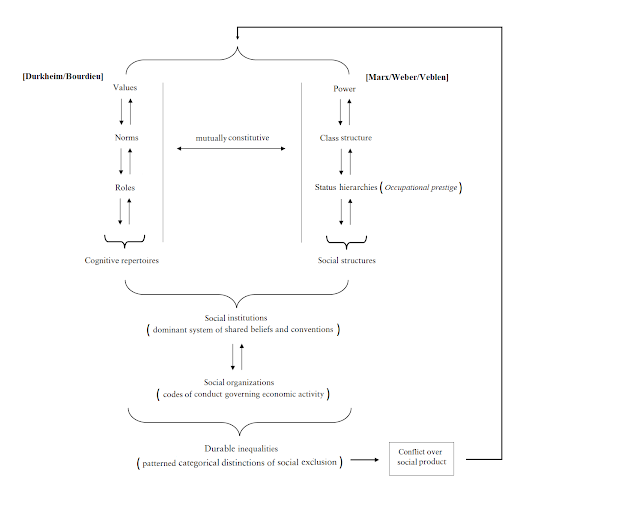By David Fields (guest Blogger)One of the defining features of classical political economy, particularly Marx, is the schema of a class system based on those who control the means of production, capitalists, and those who do not, wage labor. Yet, the intricacies of capitalist reality are more complex. As such, is it possible to formulate a model that better captures integrated social processes? Below is my attempt to do just that. This model, in my view, allows for greater attention to be devoted to analyzing the extent to which particular forms of social status and social class, allowing for intersectionality, are reproduced by general cultural conditions that affect the social division of labor, which, in turn, shape said conditions, ensuing different forms of social stratification. It
Topics:
Matias Vernengo considers the following as important:
This could be interesting, too:
Robert Vienneau writes Austrian Capital Theory And Triple-Switching In The Corn-Tractor Model
Mike Norman writes The Accursed Tariffs — NeilW
Mike Norman writes IRS has agreed to share migrants’ tax information with ICE
Mike Norman writes Trump’s “Liberation Day”: Another PR Gag, or Global Reorientation Turning Point? — Simplicius
Literature:
Bourdieu, Pierre, 1984, Distinction: A Social Critique of the Judgment of Taste, translated by Richard Nice, Cambridge, MA, Harvard University Press.
Durkheim, Emile, 1995 [1915], The Elementary Forms of Religious Life, New York, Free Press.
Marx, Karl, 1967 [1867], Capital, Volume 1, New York, International Publishers.
Tilly, Charles, 1998, Durable Inequality, Berkeley, CA, University of California Press
Veblen, Thorstein, 1998 [1899], The Theory of the Leisure Class. Amherst, NY,Prometheus Books.
Weber, Max, 1968 [1946] “Class, Status and Power,” pp. 180–95 in From Max Weber: Essays in Sociology, translated by Hans H. Gerth and C. Wright Mills, New York, Oxford University Press.

